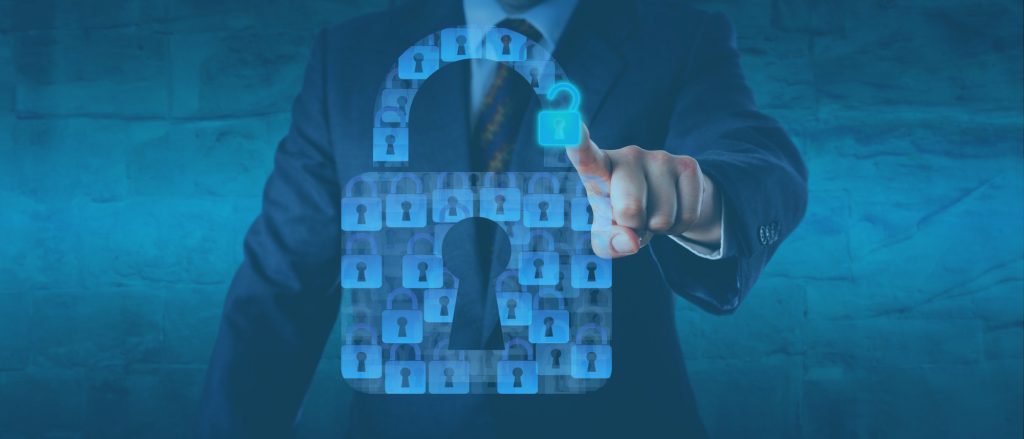Cyber Attacks Are The New Normal
Last year, we talked about cyber attacks being on the rise. Data breaches were being reported regularly in the wider media. As awareness of the risks, not only to large corporates, but to SME’s and employee accounts has risen, it has become the new normal for most of us. Cybersecurity has always been a vital component of a comprehensive IT Strategy and an all too frequent occurrence in the IT press, but as hackers become more and more sophisticated, it’s more important than ever to make sure your business and staff are protected.
SME’s Need To Take Action
Too many SME’s are putting their heads in the sand and we often hear “Why would anyone want to attack our site or systems we aren’t big enough”. The idea and popular misconception that major data breaches only happen to larger companies or big names being specifically targeted is now dangerously outdated, and leaves smaller companies even more exposed. There has never been a better time to make sure you have the right IT provider in place who will help you shape and proactively enforce your data security requirements.
Our Top Tips For Protecting SME’s From Data Breaches
- Implement Robust Password Policies: Enforce the use of strong, unique passwords for all accounts and systems. Consider using password managers to securely store and manage passwords.
- Regularly Update Software and Systems: Ensure that all software, operating systems, and applications are kept up-to-date with the latest security patches and updates to mitigate vulnerabilities.
- Educate Employees on Cybersecurity Awareness: Provide comprehensive training on recognising phishing emails, suspicious links, and social engineering tactics. Encourage a culture of vigilance and empower employees to report any security concerns promptly.
- Secure Wi-Fi Networks: Encrypt Wi-Fi networks with WPA2 or WPA3 security protocols and use strong, unique passwords. Implement additional measures such as network segmentation and guest networks to minimise the risk of unauthorised access.
- Enable Multi-Factor Authentication (MFA): Implement MFA wherever possible to add an extra layer of security beyond passwords. This can significantly reduce the risk of unauthorised access to accounts and systems.
- Encrypt Sensitive Data: Utilise encryption technologies to protect sensitive data both in transit and at rest. This includes data stored on servers, laptops, mobile devices, and external storage devices.
- Back Up Data Regularly: Implement a robust backup strategy to ensure that critical data is regularly backed up and stored securely. Test backups periodically to verify their integrity and effectiveness.
- Limit Access to Sensitive Information: Implement the principle of least privilege by restricting access to sensitive data only to authorised personnel on a need-to-know basis. Regularly review and update access permissions as roles and responsibilities change.
- Secure Endpoints and Devices: Deploy endpoint protection solutions such as antivirus software, firewalls, and intrusion detection systems to safeguard devices against malware, ransomware, and other cyber threats.
- Create an Incident Response Plan: Develop a comprehensive disaster recovery and incident response plan outlining steps to take in the event of a data breach or security incident. Assign roles and responsibilities, establish communication protocols, and conduct regular drills to ensure readiness.
- Monitor and Audit Systems: Implement monitoring and auditing tools to track and analyse system activity for signs of unusual or suspicious behaviour. Regularly review logs and audit trails to detect and respond to potential security incidents proactively.
- Stay Informed about Emerging Threats: Keep abreast of the latest cybersecurity threats, trends, and best practices through industry publications, online forums, and professional networks. Stay proactive in addressing evolving threats to safeguard your business against potential risks.
What Else Can I Do To Prevent Cyber Attacks?
With an estimated 40% of UK businesses having experienced some form of attempted cyber attack, don’t let this happen to you. Talk to us at KeyInsite about keeping your cybersecurity up to date. We pride ourselves in being proactive and providing 24/7 round the clock support to give our clients peace of mind. We also give you guaranteed response times so you can be sure we’ll be there to help even in case of emergencies.



3 thoughts on “Why You Should Review Your Data Security NOW!”
Comments are closed.